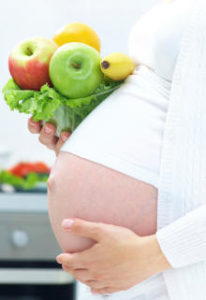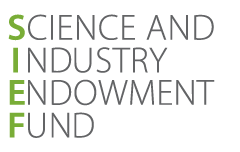EPISCOPE Research Project
Early Nutrition, the Epigenome and the Prevention of Disease
 The Department of Health and Ageing reported that in 1995 around 20-25% of Australian children aged 7 – 15 years old were considered to be overweight or obese. This is double the prevalence recorded in 1986. The incidence of obesity is also increasing in adult populations. Obesity is a risk factor for several diseases, such as diabetes, hypertension and coronary heart disease and comes at a cost to the Australian community of $8 billion dollars each year (Access Economics Report commissioned by Diabetes Australia, 2006 and 2008). This emerging epidemic is the focus of a recently supported SIEF project known as EPISCOPE being conducted by four notable Australian Institutions; the CSIRO (Sydney and Brisbane), The Garvan Institute of Medical Research (Sydney), The Women’s and Children’s Health Research Institute (Adelaide), and the University of South Australia (Adelaide).
The Department of Health and Ageing reported that in 1995 around 20-25% of Australian children aged 7 – 15 years old were considered to be overweight or obese. This is double the prevalence recorded in 1986. The incidence of obesity is also increasing in adult populations. Obesity is a risk factor for several diseases, such as diabetes, hypertension and coronary heart disease and comes at a cost to the Australian community of $8 billion dollars each year (Access Economics Report commissioned by Diabetes Australia, 2006 and 2008). This emerging epidemic is the focus of a recently supported SIEF project known as EPISCOPE being conducted by four notable Australian Institutions; the CSIRO (Sydney and Brisbane), The Garvan Institute of Medical Research (Sydney), The Women’s and Children’s Health Research Institute (Adelaide), and the University of South Australia (Adelaide).
Pregnant woman with fresh fruit
The collaborative project will study a phenomena often referred to as the “ghost in our genes”, or the epigenome. Found deep in our cells, the epigenome ‘authorises’ the way in which information in the genome – the letters in the DNA code – is used throughout life i.e. the epigenome brings the genome to lifeThis ultimately influences the expression of certain traits including our risk of obesity and its associated metabolic diseases later in life. The team’s approach involves the identification of epigenetic signatures early in life that are associated with risk of obesity later in life, and the potential modification of this set of semi-permanent, epigenetic molecular signatures.
While the project has a strong focus on human health, it also has an important livestock component. The project includes the use of an animal model enabling the team to understand epigenetic mechanisms and improve livestock production traits, such as metabolic efficiency – a key goal in the $16 billion per year livestock industry.
For further information please contact:
Dr Peter L Molloy: CSIRO peter.molloy@csiro.au
Related links
- Early Nutrition Final Report Summary [PDF 392KB]
- Early Nutrition Toward Impact Brochure
- Promoting Healthy Weight: Australian Government Department of Health and Aging
- Epigenetics: The Garvan Institute (Sydney)
- Samaras: The Garvan Institute (Sydney)
- UniSA in National Obesity Research Project: The University of South Australia (Adelaide)
- SIEF Impact Review – Impact Case Study – EpiSCOPE [PDF 300KB]
